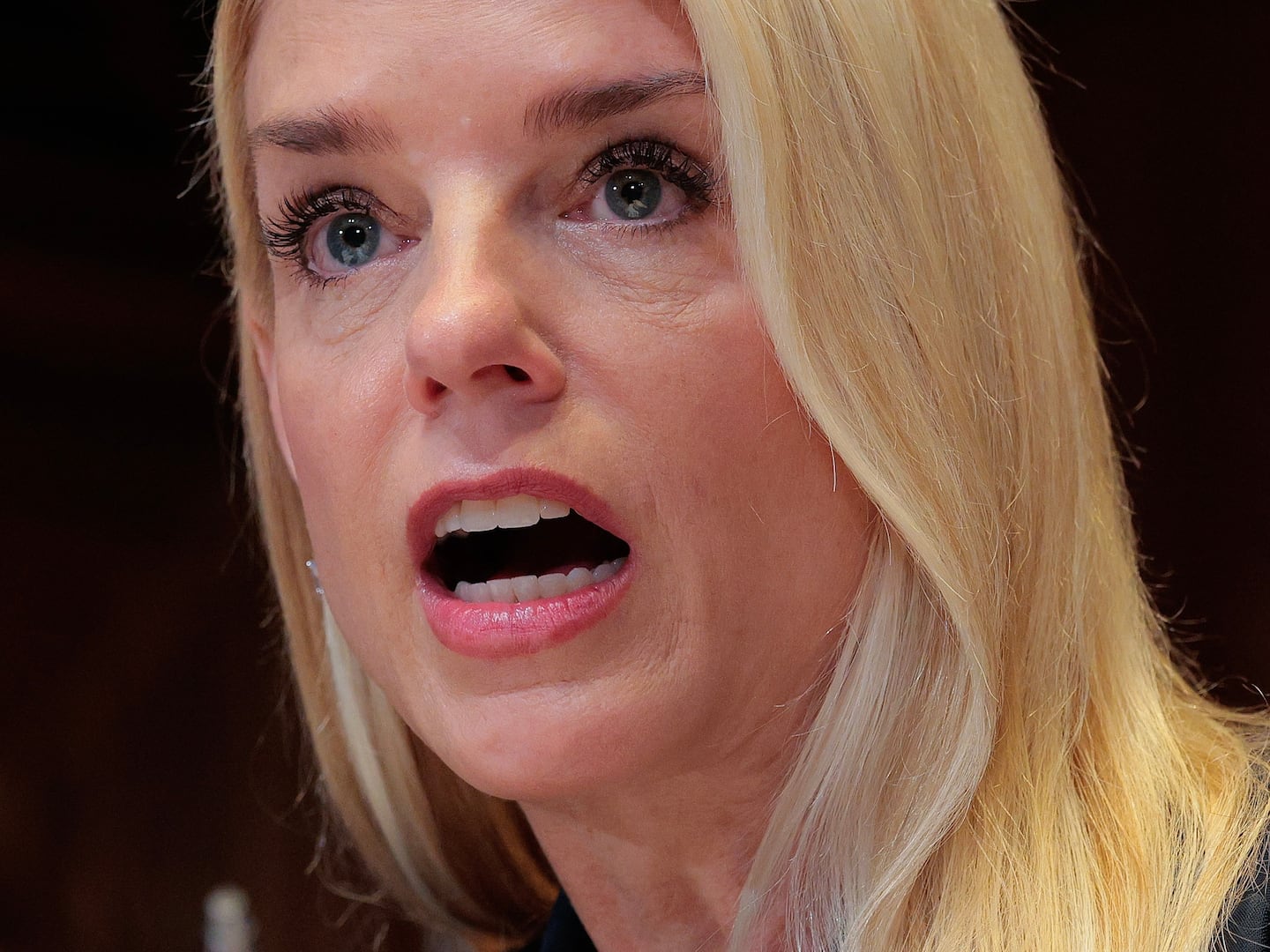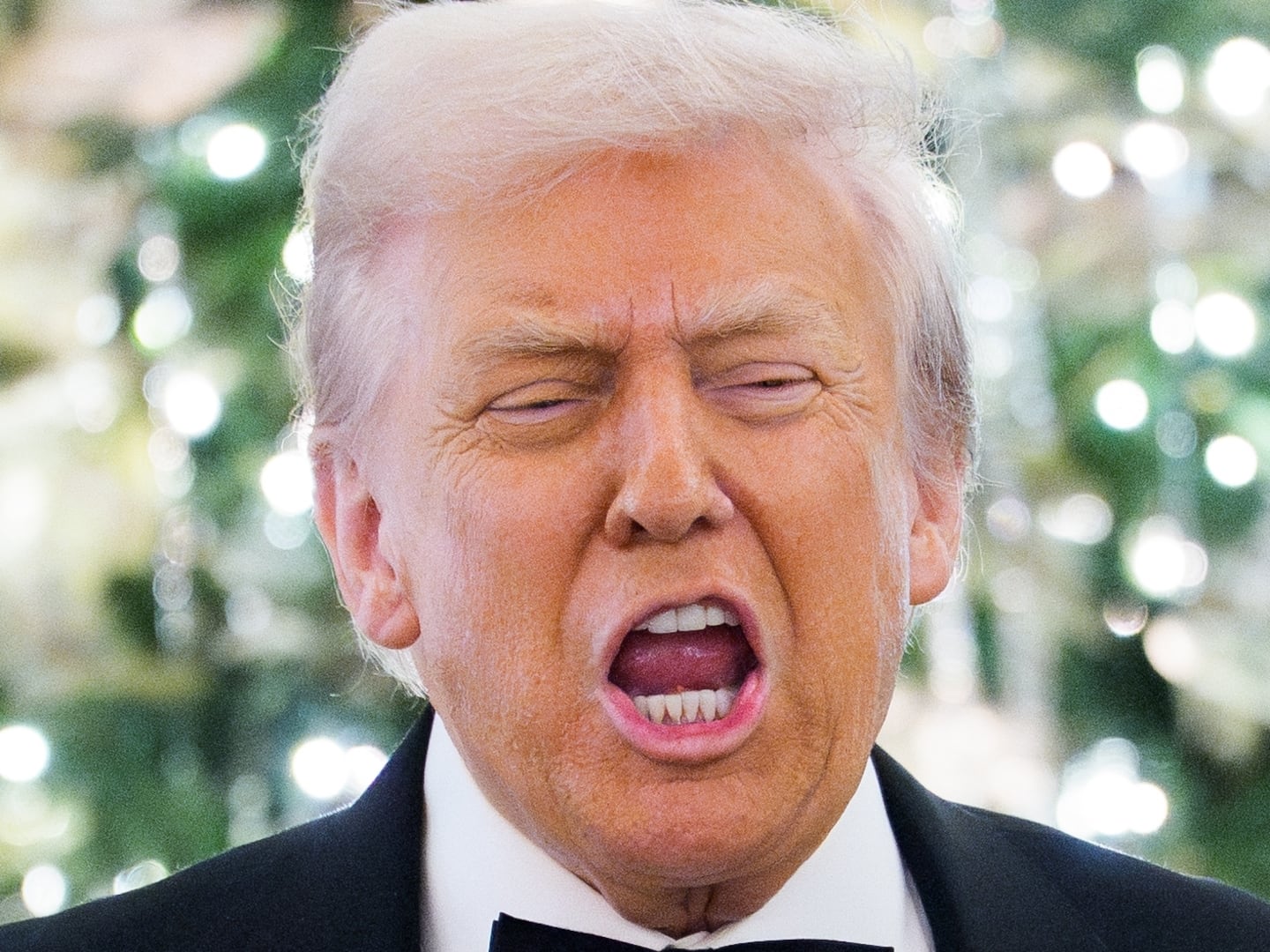Three-peats are usually for winners on the hardcourt. No losing candidate this side of Harold Stassen has tried to bum-rush the White House run three times.
But the unflappable, impeccably coiffed Mitt Romney’s 2016 flirtation—once little more than a lazy media fascination—is now moving to the donor-courtship phase. This could be real. And it’s not as totally crazy as it seems on the surface.
The GOP field is in pygmy warlord phase—loud, fractured, and not terribly impressive. The most credible candidate is Jeb Bush, a far-sighted policy wonk whose greatest asset and liability is his last name. Powerhouse Chris Christie still has Bridgegate clouds hovering over his reputation. Rand Paul promises to bring the libertarian revolution to prime time and could inspire enthusiasm beyond the old base—but there’s still that wild gleam in the eye of the Kentucky ophthalmologist who would have his finger on the bomb. Rick Perry and Ted Cruz are the Jekyll and Hyde of Texas politics. Mike Huckabee and Rick Santorum are running to be the president of faith-based America. Bobby Jindal is running to be vice president.
Amid this crowd, Mitt Romney remains the tallest midget in the room. And oddly enough, thanks in part to the Obama administration, the flipping Mormon has emerged from 2012 with his reputation enhanced.
Scrubbing off the stink of failure, Mitt was the top GOP surrogate in 2014 while Democrats were hiding under shrubbery to avoid the president’s endorsement. His much-mocked warnings about Russia proved prescient. Perhaps most crucially, the behind-the-scenes documentary Mitt showed the man behind the politician’s mask. While Mitt the candidate never trusted the media—or perhaps the public—enough to show his unscripted self for any sustained period of time, the documentary revealed a thoroughly decent family man, an endearingly frugal multimillionaire with a steady executive temperament. As all contemporary candidates eventually learn, taking the risk of intimacy is actually the best way to connect with voters and capture their imagination. Be a person.
Moreover, Republican leaders who would have every reason to eye-roll the idea of a Mitt re-run into oblivion seem more than willing to listen.
Rep. Jason Chaffetz of Utah—a key surrogate in 2012—received a call from Romney on Saturday morning and told The Daily Beast that “He’s seriously considering it... He’s well-vetted, he knows how to raise a billion dollars to beat Hillary Clinton and he was right on the issues.”
But could he run a third time and win? “He has a better shot than anybody else,” Chaffetz said. “Bush round three doesn’t sound very appetizing to most.”
And then there’s the question of money. “Hillary Clinton is going to raise a lot of money. Who in the Republican field can keep up her pace except Mitt Romney?” he said. “I think he’s the one guy out there that could actually beat her.” He added, “I think our party needs him.”
In New Hampshire, longtime Romney advisers Tom Rath and Jim Merrill both told The Washington Post they were on board for a third run. But not everyone is reupping.
Fergus Cullen, a former chair of the New Hampshire Republican Party, wasn’t sure Romney was the right choice again. “I’m open to that discussion, but I want to hear an argument,” he said. “I feel a little like I feel about Jeb [Bush],” he said. “I could see Jeb doing well, but I could also see him falling on his face, I sort of feel that way about Romney take three.”
Ultimately, presidential contests are compared-to-what affairs. While Romney stacked up badly against Obama, he might be more appealing versus Hillary Clinton than a redux of the Bush-Clinton 1992 race. In the primary, party activists might be more inclined to prefer Romney than Jeb’s outspoken (and honorable) support of immigration reform and Common Core.
But among the many open questions that need to be answered is which Mitt will run for president? Will it be the center-right Northeast Republican governor who magically appeared in the first presidential debate against Obama and promptly romped to victory on that stage? Or will it be the straining self-styled “severe conservative” who seemed willing to adopt almost any position to be president?
If Mitt is liberated by experience to be a more authentic candidate this time around, Romney 3.0 might actually look like more like Romney 1.5, triangulated between his time as pro-business Massachusetts governor who passed bipartisan health-care reform and his more Utah-oriented national conservative self.
In the end, there are no rules in presidential politics except precedent. Romney has little to lose by running again for what he hasn’t lost already. And given the field of unknowns—including a Bush scion who hasn’t run for office in a decade—Romney’s experience could be a steadying factor. Looking down the field, his picture-perfect family could contrast favorably with the Clintons as well (though it’s also easy to imagine that campaign ending up a checkers versus chess mismatch of pure political talent).
The whole package might not be much more inspiring than Nixon ’68 and the personal virtue of sticktuitiveness is not reason to run for president again.
But at this jump-ball moment, the prospect of Mitt ’16 must be taken seriously because if he gets in, it will change the race and leave the other Republicans reeling.






